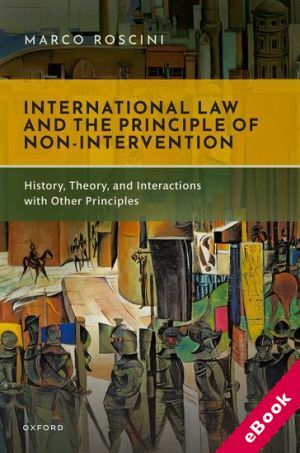
The device(s) you use to access the eBook content must be authorized with an Adobe ID before you download the product otherwise it will fail to register correctly.
For further information see https://www.wildy.com/ebook-formats
Once the order is confirmed an automated e-mail will be sent to you to allow you to download the eBook.
All eBooks are supplied firm sale and cannot be returned. If you believe there is a fault with your eBook then contact us on ebooks@wildy.com and we will help in resolving the issue. This does not affect your statutory rights.
The principle of non-intervention in the domestic affairs of states is one of the most venerable principles of international law. Although not expressly mentioned in the Charter of the United Nations, at least as an inter-state prohibition, the principle currently appears in a plethora of treaties and UN General Assembly resolutions and has been invoked like a mantra by states of all geographical and political denominations. Despite this, the determination of its exact content has remained an enigma.
International Law and the Principle of Non-Intervention: History, Theory, and Interactions with Other Principles solves this enigma by exploring what constitutes an 'intervention' in international law and when interventions are unlawful. These questions are approached from three different perspectives, which are reflected in the book's structure: historical, theoretical, and systematic. Through a comprehensive survey of primary documents and of over 200 cases of intervention from the mid-18th century to the present day, as well as an extensive literature search, this work provides an in-depth analysis of the principle of non-intervention which links it to fundamental notions of international law, including sovereignty, use of force, self-determination, and human rights protection.